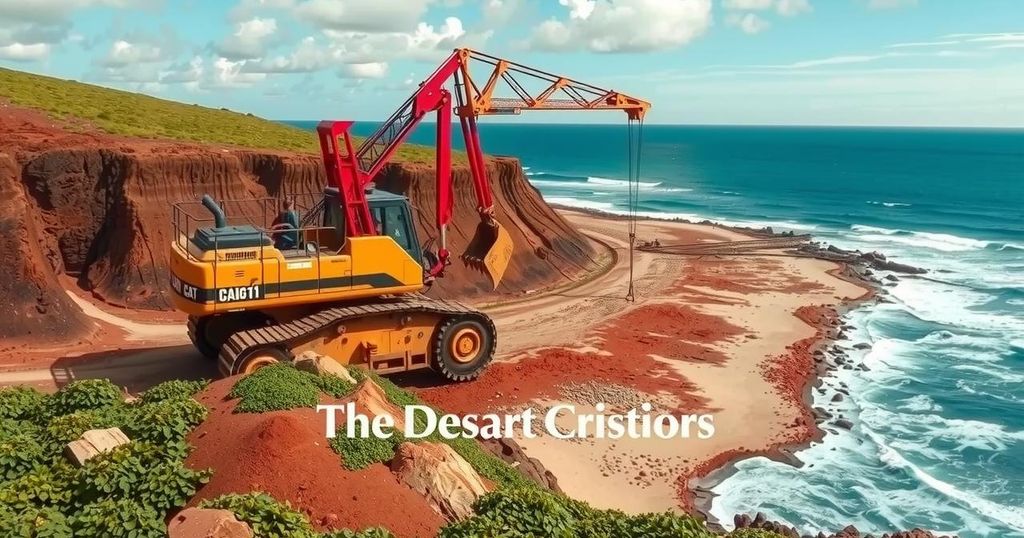Impact of Giant Mining Dredger on Senegal’s Fertile Coast and Local Communities

Eramet’s massive mining dredger in Senegal threatens local agriculture and ecosystems, causing displacement of farmers and ecological degradation. President Faye demands more oversight, while locals argue for compensation and a moratorium on further mining operations amid rising discontent due to environmental impacts.
In Senegal, the world’s largest mining dredger has been extracting zircon along a significant portion of the fertile coastal strip where much of the nation’s vegetables are cultivated. This operation, directed by the French mining company Eramet, has resulted in a conspicuous 23-kilometer scar visible from space, deeply impacting the local environment and farming communities.
The dredger operates at an alarming pace, extracting thousands of tons of mineral sands per hour while destroying the delicate ecosystems of Lompoul, a celebrated tourist destination famed for its pristine beaches. Over the past decade, the mining project has displaced thousands of farmers, leading to widespread local discontent due to perceived environmental destruction and inadequate compensation for lost land.
Local leaders, along with Senegal’s President Bassirou Diomaye Faye, have recently raised concerns regarding the mining practices. They emphasize the need for increased transparency and accountability, highlighting the lack of benefits for local populations from the mining activities. Prior administrations had permitted the initiation of the mining under terms that many locals now bitterly contest.
Eramet asserts that its practices are responsible, claiming that it has compensated locals significantly more than nationally stipulated guidelines for the loss of land. However, local testimony reveals ongoing struggles with farming viability, loss of water security, and inadequate economic support in comparison to prior levels of productivity and community well-being.
Several community members have voiced their frustrations, stating that promises made during the initiation of mining operations have not been fulfilled. Complaints detail gross underestimations of land value and inadequate housing conditions for displaced individuals. While EGC maintains that numerous modern facilities have been constructed for those affected, many argue these developments do not match their prior livelihoods.
Furthermore, significant environmental concerns persist, with locals alleging that the dredging methods have led to the degradation of soil and contamination of water sources. While the company claims to operate within the parameters of the law, community leaders are demanding a temporary suspension of mining to thoroughly assess the socio-environmental impacts before proceeding with expansion plans.
Despite continuing protests and demands for a moratorium, EGC remains committed to increasing its production capacity, citing regional dependence on mining for potential economic advancement. The ongoing situation demonstrates the complex balance between economic development and the preservation of local communities and ecosystems in Senegal.
The mining operations in Senegal, primarily driven by Eramet’s giant dredger, raise critical questions about environmental sustainability and community welfare. Despite claims of responsible practices and substantial economic contributions, the dissent among local farmers indicates significant discontent stemming from displacement, inadequate compensation, and environmental degradation. As calls for accountability and environmental assessments grow, the future of this industrial endeavor remains contentious, intertwining economic growth with community rights and ecological integrity.
Original Source: www.kpvi.com







